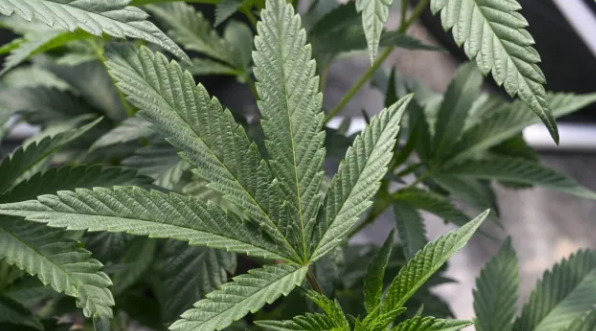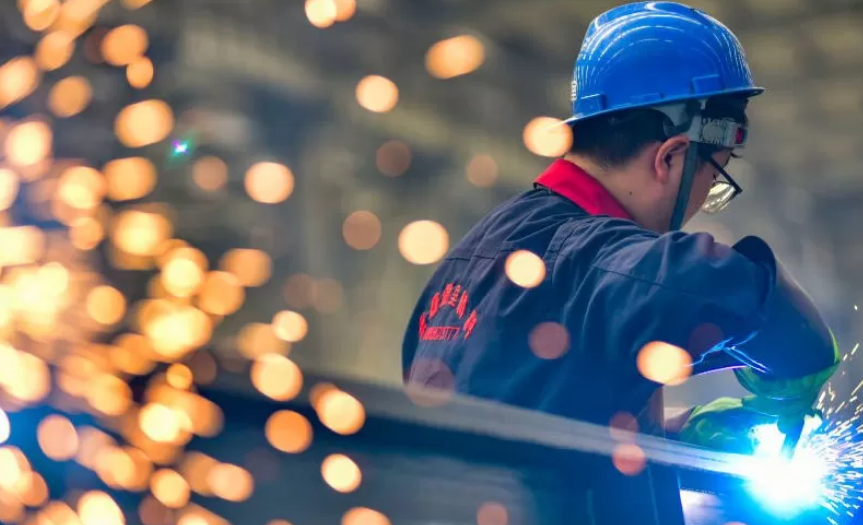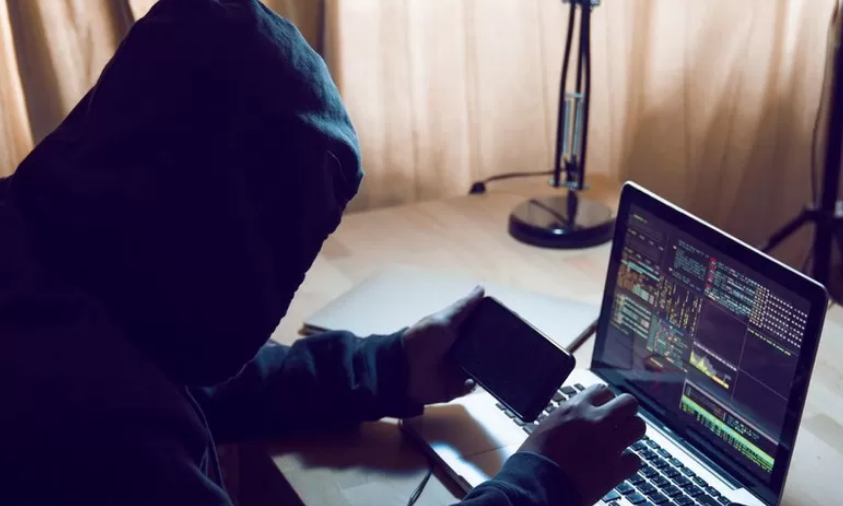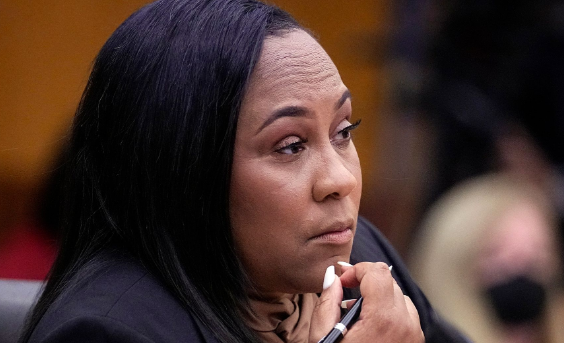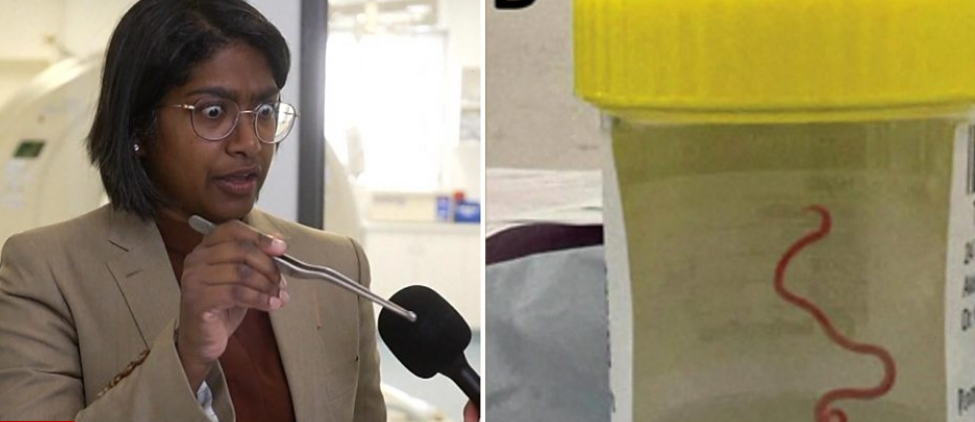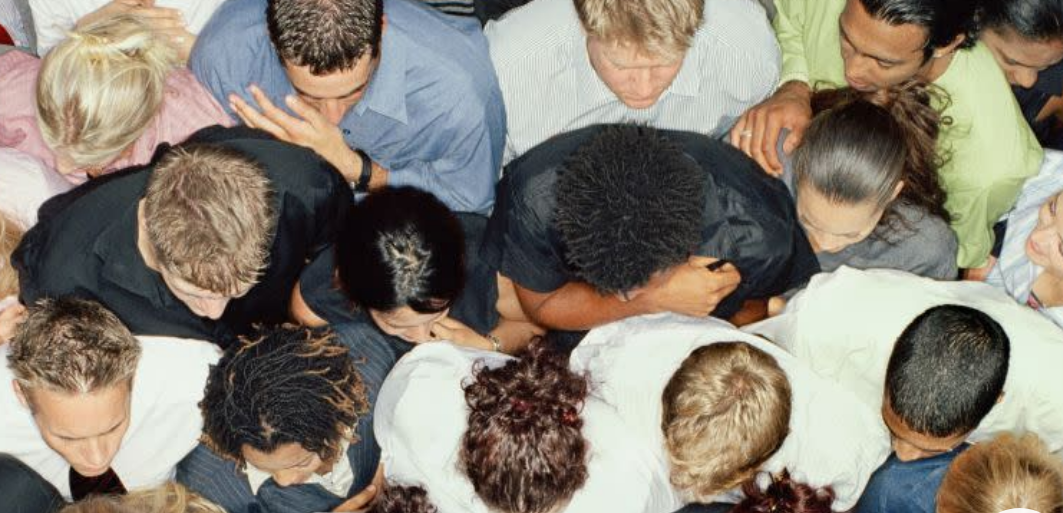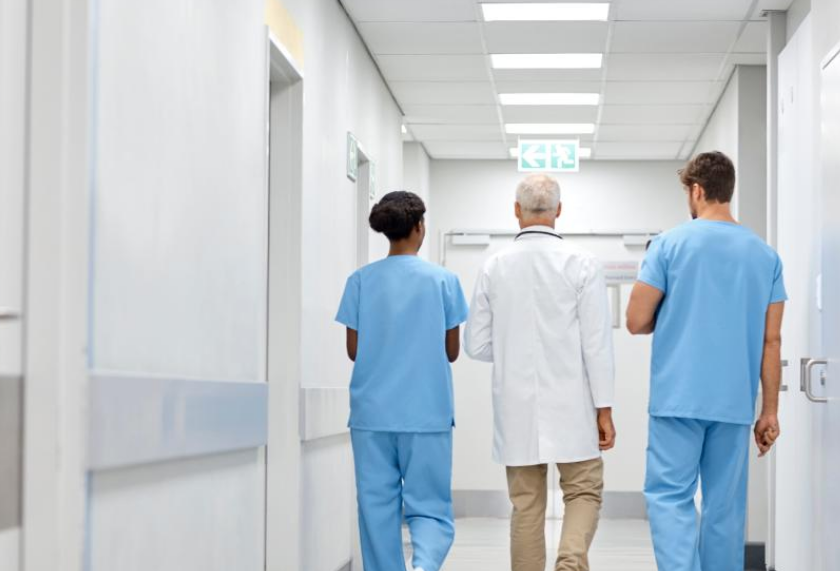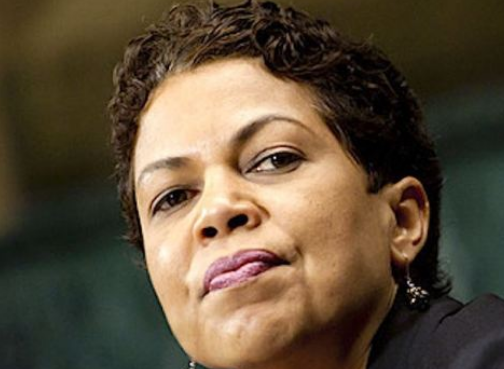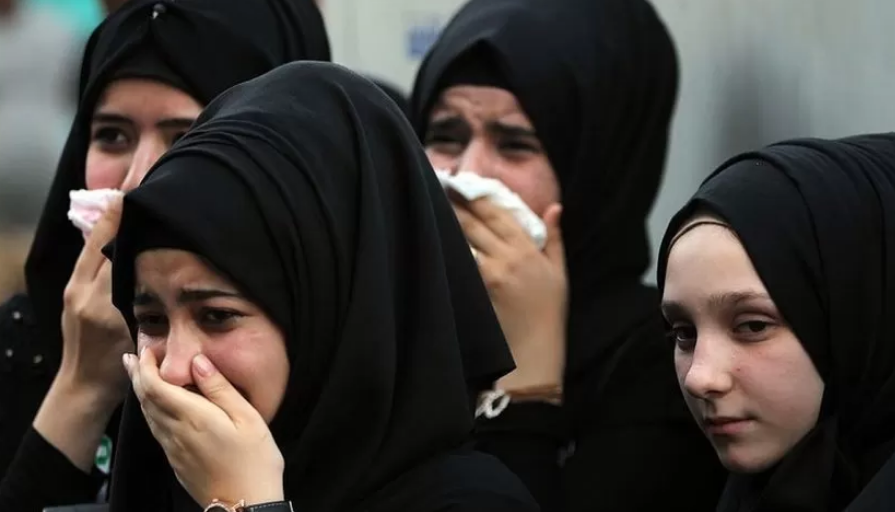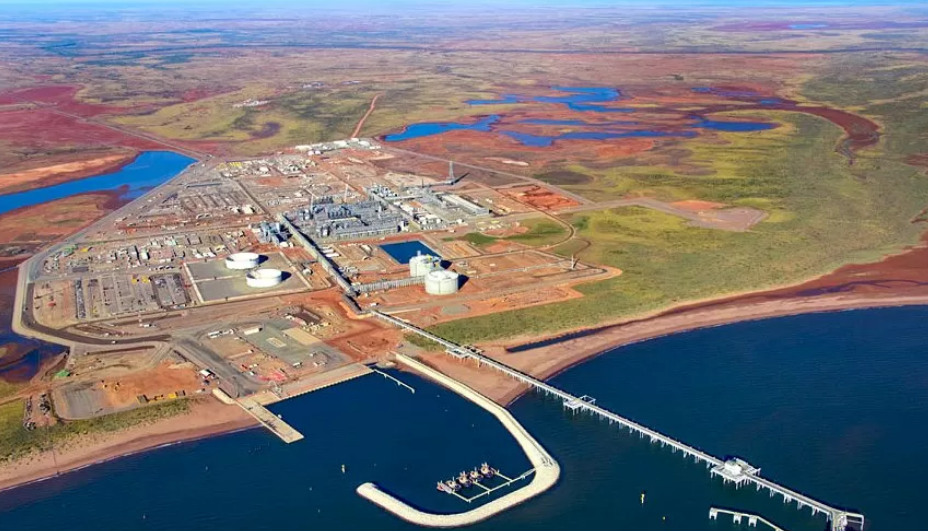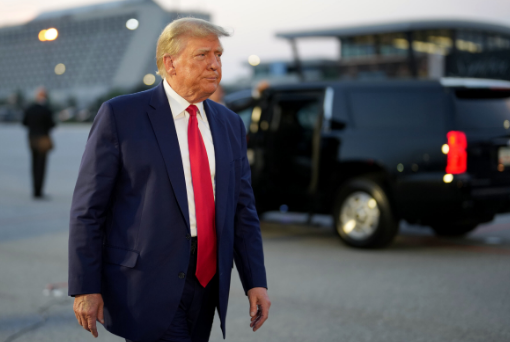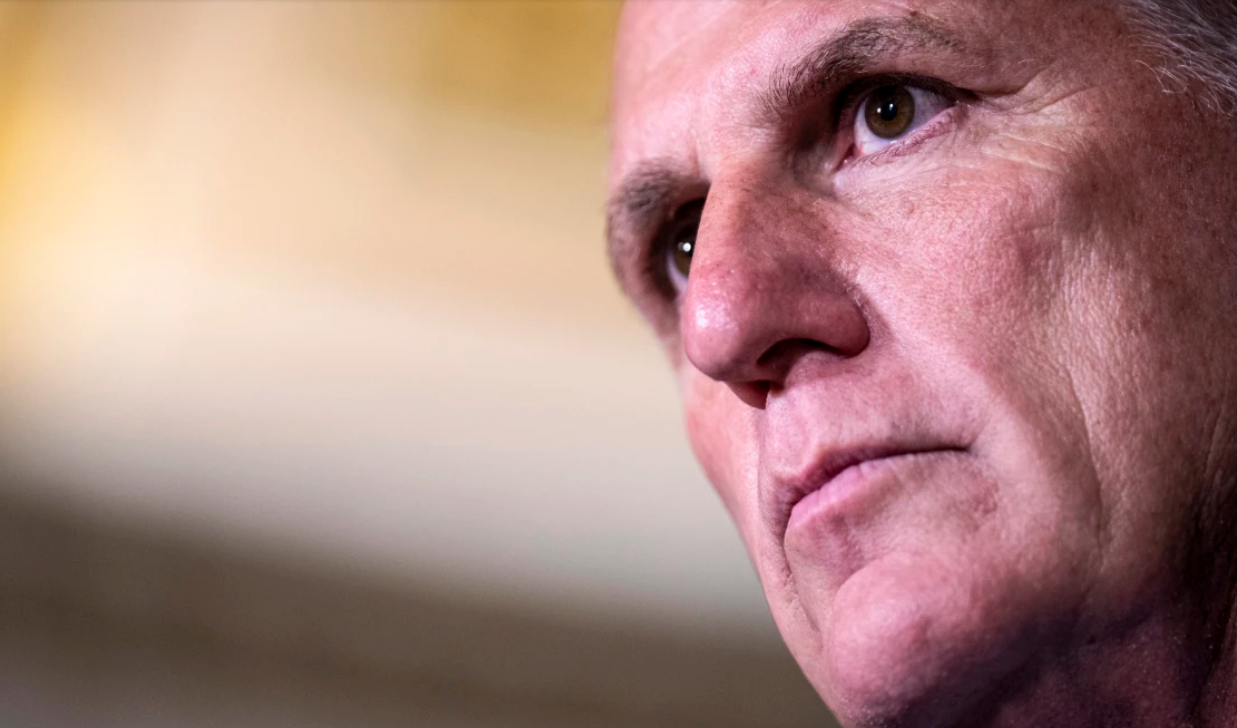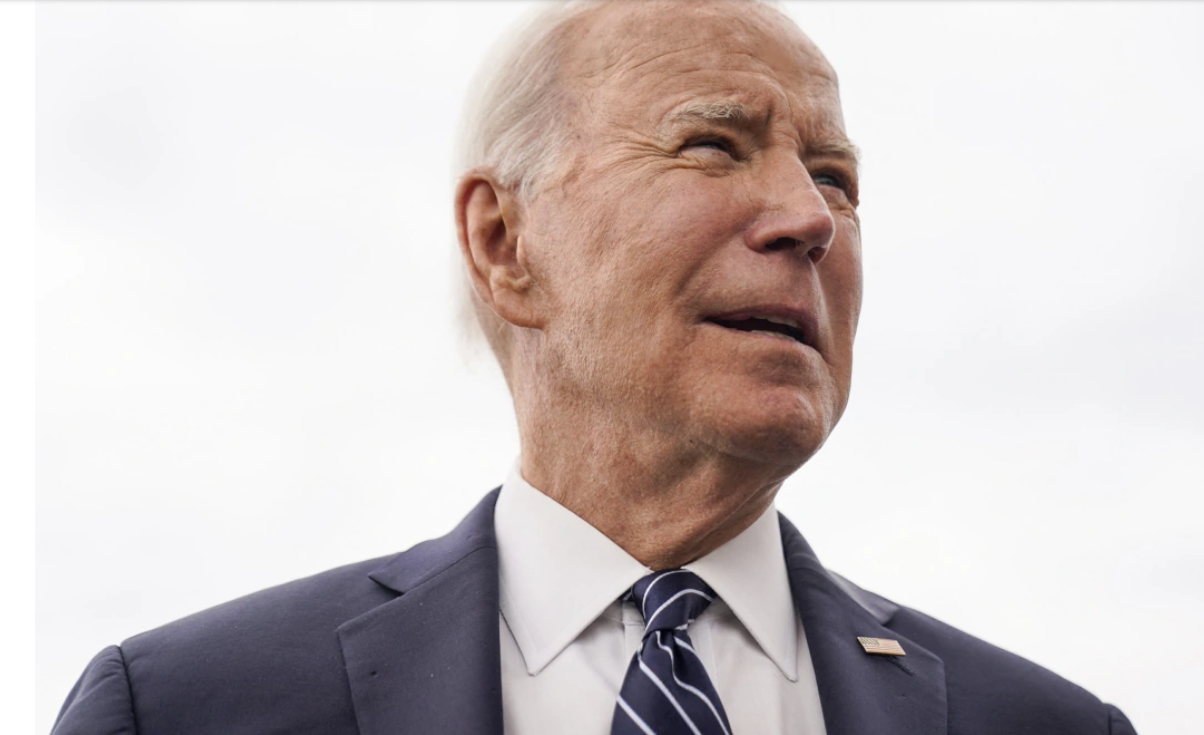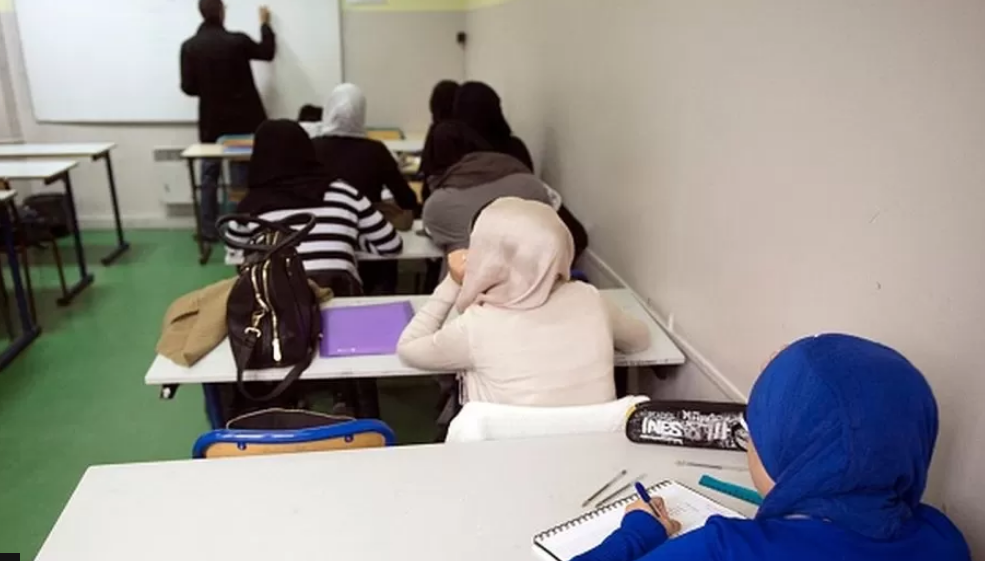-
Posts
10,699 -
Joined
-
Last visited
Content Type
Events
Forums
Downloads
Quizzes
Gallery
Blogs
Everything posted by Social Media
-
A study has found that marijuana users have elevated levels of heavy metals in their blood and urine compared to those who do not use marijuana. The study, published Wednesday in the Environmental Health Perspectives journal, found that marijuana users had higher levels of lead in their blood and urine compared to non-marijuana users. Conducted at Columbia University’s Mailman School of Public Health, the study used data from the National Health and Nutrition Examination Survey and conducted the research with a group of more than 7,200 participants. The researchers split participants into five groups: non-marijuana/non-tobacco, exclusive marijuana, exclusive tobacco, and dual marijuana and tobacco use. They measured five different metals in participants’ blood and 16 in their urine. “Because the cannabis plant is a known scavenger of metals, we had hypothesized that individuals who use marijuana will have higher metal biomarker levels compared to those who do not use,” author Katlyn McGraw, postdoctoral researcher in Columbia Public Health’s Department of Environmental Health Sciences, said in a press release. “Our results therefore indicate marijuana is a source of cadmium and lead exposure,” she added. FULL STORY
-
The past six months has brought a stream of bad news for China's economy: slow growth, record youth unemployment, low foreign investment, weak exports and currency, and a property sector in crisis. US President Joe Biden described the world's second-largest economy as "a ticking time bomb", predicting growing discontent in the country. China's leader Xi Jinping hit back, defending the "strong resilience, tremendous potential and great vitality" of the economy. So who is right - Mr Biden or Mr Xi? As is often the case, the answer probably lies somewhere in between. While the economy is unlikely to implode any time soon, China faces huge, deep-rooted challenges. A property crisis and poorer households Central to China's economic problems is its property market. Until recently, real estate accounted for a third of its entire wealth. "This made no sense. No sense at all," says Antonio Fatas, professor of economics at the business school INSEAD in Singapore. For two decades, the sector boomed as developers rode a wave of privatisation. But crisis struck in 2020. A global pandemic and a shrinking population at home are not good ingredients for a programme of relentless housebuilding. The government, fearing a US-style 2008 meltdown, then put limits on how much developers could borrow. Soon they owed billions they could not pay back. Now demand for houses has slumped and property prices have plunged. This has made Chinese homeowners - emerging from three years of tough coronavirus restrictions - poorer. "In China, property is effectively your savings," says Alicia Garcia-Herrero, chief Asia economist at wealth management firm Natixis. "Until recently, it seemed better than putting your money into the crazy stock market or a bank account with low interest rates" It means that, unlike in Western countries, there has been no post-pandemic spending boom or major economic bounce back. FULL STORY
-

Mitch McConnell freezes for second time during press event
Social Media posted a topic in World News
For the second time in just over a month, Senate Republican leader Mitch McConnell appeared to freeze while speaking to reporters. At a press event in Covington, Kentucky, the 81-year-old paused for more than 30 seconds when asked whether he would run for-re-election in 2026. Aides attempted to prompt the senator, but it took several more seconds for Mr McConnell to recover. He then answered two more questions, which had to be repeated by staff. He made no comments about his health, before leaving with aides. "Leader McConnell felt momentarily lightheaded and paused during his press conference today," a spokesperson said after the incident. A staffer later told the BBC's US partner CBS News the lawmaker "feels fine" but "will be consulting a physician prior to his next event". Mr McConnell's first verbal lapse occurred during a press conference at the US Capitol in Washington DC on 26 July. There, he paused mid-sentence for approximately 20 seconds, before being ushered away by his fellow Republican senators. He later returned and told reporters he was "fine" and had felt "lightheaded". Mr McConnell, who leads the Republican party's narrow minority in the upper chamber of Congress, was admitted to hospital for a week after suffering a concussion and a fractured rib following a fall outside a Washington area hotel in March. He was transferred to a rehabilitation facility and did not return to the Senate until mid-April. After the freezing incident in July, US media reported that Mr McConnell has endured at least three other falls since February. This latest episode will again raise questions about the health of the Kentucky senator heading into what will be a busy autumn legislative session, as Congress attempts to avoid a partial government shutdown at the end of October. An aide to Senator John Thune, Mr McConnell's deputy in the chamber, told reporters they had spoken after the incident. Mr McConnell "sounded like his usual self and was in good spirits", Ryan Wrasse said. "We have disagreements politically but he's a good friend and so I'm going to try and get in touch with him later this afternoon," President Joe Biden said later on Wednesday. Concern over Mr McConnell's health follows questions about the condition of 90-year-old California Democratic Senator Dianne Feinstein, who was absent from the chamber for months after being diagnosed with a severe case of shingles. The average age for members of the US Senate is 65. FULL STORY -
Sky gazers around the world are in for a rare treat as a blue supermoon is making a spectacular appearance for the first time since 2009. A blue Moon occurs when the pattern of days in a year means there are 13 full Moons instead of the usual 12. This blue Moon is also a supermoon - when the Earth's only natural satellite appears brighter than usual because it is at its closest point in its orbit around our planet. But despite its name, the lunar phenomenon has nothing to do with colour - it gets its name because it does not fall in the usual scheme of named Moons. The lunar spectacle is visible either on Wednesday or Thursday in different parts of the world. In the UK, the best time to see the spectacle will be in early hours of Thursday morning. MORE IMAGES
-
https://aseannow.com/forum/50-thailand-local-forums/ They are all listed.
-
A new UN report estimates that hundreds of thousands of people from around the world have been trafficked to Southeast Asia to run online scams. At least 120,000 people in Myanmar, and another 100,000 in Cambodia, have been forced into working these scams. Most victims are men from Asia, but some have come from further afield such as Africa and Latin America. While the problem has existed for years, the UN report is the first comprehensive study of its scale. As pandemic-related shutdowns saw millions of people stuck in their homes and spending more time online, they became ready targets for the masterminds of online fraud schemes, according to the report. And while criminal gangs have traditionally preyed on less-educated people desperate to make a quick buck, they are now targeting victims with professional jobs, who often have graduate or even post-graduate degrees. Many of these places where people are forced into cybercrime are in jurisdictions where governance and the rule of law are weak, and authority is contested, the report said. "In continuing to call for justice for those who have been defrauded through online criminality, we must not forget that this complex phenomenon has two sets of victims," said the UN High Commissioner for Human Rights Volker Türk. The UN estimates that these scams centres generate billions of US dollars in revenue per year. Various media outlets including the BBC have spoken extensively to people who have fallen victim to these criminal networks. Often, they are lured by ads promising easy work and extravagant perks, then tricked into travelling to Cambodia, Myanmar and Thailand. Once they arrive, they are held prisoner and forced to work in online scam centres. Those who do not comply face threats to their safety. Many have been subject to torture and inhuman treatment. Some networks also target people seeking love and romance - in what's often known as "pig-butchering" scams. In a tragic case last year, a 25-year-old Malaysian was tortured to death after he went to Bangkok to meet a "girlfriend" he had only spoken to online. Instead, he was trafficked to Myanmar and forced to work for companies involved in online scams. In one of his last calls to his parents, he said he had been beaten up for allegedly faking illness. He died after being in intensive care for a month. FULL STORY
- 15 replies
-
- 10
-

-
OP requested Closure. CLOSED
-
India says it has lodged a "strong protest" with China over a new map that lays claim to its territory. Indian media have reported that the map shows the north-eastern state of Arunachal Pradesh and the disputed Aksai Chin plateau as China's territory. It was released by China's ministry of natural resources on Monday. "We reject these claims as they have no basis," India's foreign ministry spokesperson Arindam Bagchi said. He added that such steps by China "only complicate the resolution of the boundary question". Beijing has not officially responded yet. India's Foreign Minister S Jaishankar also called China's claim "absurd". "China has even in the past put out maps which claim the territories which are not China's, which belong to other countries. This is an old habit of theirs," he told TV channel NDTV on Tuesday. Shadow of 60-year-old war at India-China flashpoint The Indian monastery town coveted by China India has often reacted angrily to China's attempts to stake claim to its territory. FULL STORY
-
- 1
-

-
Fulton County, Ga., District Attorney Fani Willis asked a Georgia judge Tuesday to expedite the cases of all 19 defendants charged in a sweeping racketeering case over interference in the state’s 2020 election. After defendant Kenneth Chesebro demanded a speedy trial in the case, Fulton County Superior Court Judge Scott McAfee set his trial date for Oct. 23, four months sooner than the date Willis originally proposed. In that ruling, McAfee said the decision to move forward with an October trial date pertains only to Chesebro “at this time.” Willis pushed back against that decision in a Tuesday court filing. “The State of Georgia respectfully requests that the Court set aside its Case Specific Scheduling Order entered on August 24, 2023, to the extent that the Order states, ‘[a]t this time, these deadlines do not apply to any co-defendant,'” Willis wrote in the filing. Georgia’s speedy trial rules say the cases must be tried before the end of two court terms following their arraignments. All the defendants’ arraignments, where they will formally hear the charges they face and enter a plea, are set for Sept. 6. FULL STORY
-

Live worm found in Australian woman's brain in world first
Social Media posted a topic in World News
In a world first, scientists say an 8cm (3in) worm has been found alive in the brain of an Australian woman. The "string-like structure" was pulled from the patient's damaged frontal lobe during surgery in Canberra last year. "It was definitely not what we were expecting. Everyone was shocked," said operating surgeon Dr Hari Priya Bandi. The woman, 64, had for months suffered symptoms like stomach pain, a cough and night sweats, which evolved into forgetfulness and depression. She was admitted to hospital in late January 2021, and a scan later revealed "an atypical lesion within the right frontal lobe of the brain". But the cause of her condition was only revealed by Dr Bandi's knife during a biopsy in June 2022. The red parasite could have been alive in her brain for up to two months, doctors said. The woman, who lived near a lake area in south-eastern New South Wales state, is recovering well. Her case is believed to be the first instance of a larvae invasion and development in the human brain, researchers said in the Emerging Infectious Diseases journal which reported the case. FULL STORY -
Australians will vote in a historic referendum on 14 October to decide whether to enact an Indigenous Voice to Parliament. If approved, the vote would recognise Aboriginal and Torres Strait Islander people in the country's constitution, and establish a permanent body for them to give advice on laws. The proposal is the subject of fierce debate in Australia. The country has not had a successful referendum in almost 50 years. For it to succeed, a majority of Australians need to vote yes. There also needs to be majority support in at least four of Australia's six states. The composition, functions and powers of the body - whose advice would not be binding - would then be designed and debated by the parliament. Announcing the poll date at a rally in Adelaide, Prime Minister Anthony Albanese called the vote "a once-in-a-generation chance to bring our country together and to change it for the better". The Voice would be "a committee of Indigenous Australians, chosen by Indigenous Australians, giving advice to government so that we can get a better result for Indigenous Australians", he said. "You're being asked... to say yes to an idea whose time has come - to say yes to an invitation that comes directly from Aboriginal and Torres Strait Islander people themselves." FULL STORY
-
-
Death rates from acute COVID infections have fallen at this point in the pandemic, but there’s still a lot of worry about long COVID. And if you’ve been looking at recent headlines, you might assume that long COVID should very much be a concern for the average person today. A new study is out in the prestigious journal Nature Medicine that appears, at first glance, to bolster that view. Headlines about it say it shows that long COVID is worse, on a population level, than heart disease or cancer, and that it can continue to cause issues two years after the initial infection. Long COVID, which the World Health Organization defines as unexplained symptoms that are still a worry more than three months after the initial infection, is a public health concern. And yes, there is a chance that you will get COVID and have lingering symptoms. But what this study has to say about long COVID risk for most people is actually reassuring. Here’s one way to summarize what the study shows: It compared people who had a record of a COVID-19 infection in 2020 with a control group, who had never been diagnosed with the disease, and found that years later people who’d had COVID-19 were still at an increased risk of a range of issues. Specifically, the researchers found, the risks of 25 out of 80 serious conditions were elevated even in people who had not been hospitalized with their initial COVID-19 infection when compared with an uninfected control. People who had been hospitalized saw even higher risks. There are a few important things to keep in mind. First, this paper looked at what’s known as the U.S. Veterans Health Administration cohort. This is a group of generally older, mostly male patients who get health care from the VHA, and who are, on balance, much less healthy than your average person. Any issues seen in this cohort are very hard to generalize to the rest of the population. The paper also looked at people who were infected prior to the widespread availability of vaccines. FULL STORY
-
Covid-19 was never just another cold. We knew it was going to stick around and keep changing to try to get the upper hand on our immune systems. But we’ve changed, too. Our B cells and T cells, keepers of our immune memories, aren’t as blind to this virus as they were when we first encountered the novel coronavirus in 2020. The US Centers for Disease Control and Prevention has screened blood samples and estimates that 97% of people in the US have some immunity to Covid-19 through vaccination, infection or both. Then there’s science: We have updated vaccines and good antivirals to lean on when cases start to rise. Masks still work. Rapid tests are in stores. We now know to filter the air and to ventilate our spaces. Those strategies, plus our hard-won immunity, had helped bring our national numbers of infections, hospitalizations and deaths down to levels that felt almost forgettable. Almost. Now that Covid-19 infections have started to rise again, it feels like people all over the country are testing positive, and it’s hard to know how to react. The government has been dialing back its response since the end of the public health emergency in May. Good Covid-19 data is hard to come by and harder to interpret. So if people are less likely to be hospitalized or die from a Covid-19 infection now, has the danger passed? Is there still reason to worry if you do catch the infection for a second, third or fourth time? Experts say it’s less risky to catch Covid-19 than it used to be, but there are still good reasons not to treat it casually. “At this point, the risk is lower because of our prior immunity, whether for severe outcomes or for long Covid,” said Dr. Megan Ranney, an emergency physician and dean of the Yale School of Public Health. “Covid is still more dangerous than the flu, but its level of danger is becoming less,” she said, noting that we’re still very early in our human experience with the coronavirus, even four years in, and there are still things we don’t know. FULL STORY
-
Jeffrey Long is a radiation oncologist in Kentucky. He's also founder of the Near-Death Experience Research Foundation. He says studying near-death experiences has made him a better cancer doctor. This as-told-to essay is based on a conversation with Jeffrey Long. It has been edited for length and clarity. Thirty-seven years ago I was an oncologist resident, learning about how best to treat cancer using radiation. These were the pre-internet days, so I did my research in the library. One day I was flipping through a large volume of the Journal of American Medical Association when I came across an article describing near-death experiences. It stopped me in my tracks. All my medical training told me you were either alive or dead. There was no in-between. But suddenly, I was reading from a cardiologist describing patients who had died, then come back to life, reporting very distinct, almost unbelievable experiences. From that moment, I was fascinated with near-death experiences or NDEs. I define a near-death experience as someone who is either comatose or clinically dead, without a heartbeat, having a lucid experience where they see, hear, feel emotions, and interact with other beings. Learning more about these experiences has fundamentally changed my view of the universe. Near-death experiences have common threads When I finished my residency, I started the Near-Death Experience Research Foundation. I started collecting stories from people who had NDEs and evaluating them with the mind of a scientist and doctor. I make opinions based on evidence and came into this as a skeptic. But in the face of overwhelming evidence, I've come to believe there's certainly an afterlife. No two NDEs are the same. But as I studied thousands of them, I saw a consistent pattern of events, emerging in a predictable order. About 45% of people who have an NDE report an out-of-body experience. When this happens, their consciousness separates from their physical body, usually hovering above the body. The person can see and hear what's happening around them, which usually includes frantic attempts to revive them. One woman even reported a doctor throwing a tool on the floor when he picked up the wrong one—something the doctor later confirmed. After the out-of-body experience, people say they're transported into another realm. Many pass through a tunnel and experience a bright light. Then they're greeted by deceased loved ones, including pets, who are in the prime of their lives. Most people report an overwhelming sense of love and peace. They feel like this other realm is their real home. FULL ARTICLE
- 237 replies
-
- 18
-

-

-

-

-
Former President Trump and his campaign Monday lashed out at the federal judge overseeing his trial in Washington, D.C., over his efforts to subvert the 2020 election shortly after she scheduled his trial to begin for March. U.S. District Judge Tanya Chutkan set Trump’s D.C. trial for March 4 after special counsel Jack Smith’s team asked for a Jan. 2 trial date. Trump’s team suggested a trial date in April 2026, well beyond the presidential election. The March date falls one day before Super Tuesday, when more than a dozen states will hold their primaries in the Republican presidential nominating contest, where Trump is the front-runner. “Today a biased, Trump Hating Judge gave me only a two month extension, just what our corrupt government wanted, SUPER TUESDAY. I will APPEAL!” Trump wrote on Truth Social, repeating his claim that his numerous legal problems amount to “election interference” as he runs for a second White House term. Trump’s team is likely to file motions and attempt to delay the trial, though the date itself cannot directly be appealed. In addition to attacking Chutkan, Trump called Smith “deranged” and referred to his team of prosecutors as a “team of Thugs.” A Trump spokesperson in a separate statement argued that the March 2024 court date would unfairly harm the former president’s campaign efforts. “The date set today deprives President Trump of his Constitutional right to a fair trial, a seminal bedrock of America, and continues to expose the corruption of the witch hunts being thrown against President Trump,” the spokesperson said in a statement issued by the Trump campaign via email but not attributed to a specific individual. FULL STORY
-
The judge in former President Trump’s Jan. 6-related federal case landed a bombshell Monday when she set a date for his trial. U.S. District Judge Tanya Chutkan announced jury selection in the trial would begin March 4 — the day before Super Tuesday, the biggest day on the GOP primary calendar. In making her decision, Chutkan declared that a trial date “cannot and should not” depend on the timetable of a defendant’s work life. Chutkan pushed the starting date later than sought by special counsel Jack Smith and his team, who wanted the trial to begin in January. But her chosen spot on the calendar is a lot closer to Smith’s request than to the Trump team’s implausible suggestion that the trial should be postponed until 2026. It is a remarkable choice, even if Chutkan professes indifference to the political ramifications of her decision. Around 14 states are expected to cast ballots in the GOP primary on Super Tuesday. GOP figures allied with Trump are indignant. “I was shocked that they would be this blatant,” said one Republican operative supportive of Trump. “On what basis does the trial absolutely need to start the day before Super Tuesday? Are we really supposed to believe that this is just coincidence — that she didn’t take anything about the politics into account?” FULL STORY
- 136 replies
-
- 11
-

-

-

-

-
Iraq has hanged three people convicted of involvement in a vehicle bombing in Baghdad that killed more than 300 people and injured hundreds in 2016. It was the deadliest single bombing in Iraq since the US-led invasion in 2003. The Islamic State group (IS) said it had carried out the attack. Prime Minister Mohammed Shia al-Sudani's office did not name those executed or say when they had been sentenced. The executions were carried out on Sunday and Monday, it said. A government source told AFP news agency that Ghazwan al-Zawbaee, held to be the IS mastermind behind the attack, was among those put to death. Zawbaee had been captured and returned to Iraq in 2021. The prime minister informed victims' families that "the rightful punishment of death sentence" had been carried out against "three key criminals found guilty of their involvement in the terrorist bombing", his office said. On 3 July 2016 a vehicle filled with explosives was blown up next to a crowded shopping centre in Karrada, a mainly Shia Muslim area of the Iraqi capital. People had been enjoying a night out after breaking their daily fasts for the Islamic holy month of Ramadan. Many of the victims were killed by a fire that ripped through the building after the bomb blast. Interior Minister Mohammed Ghabban resigned in the wake of the blast. The then-Prime Minister, Mustafa al-Kadhimi, accused Zawbaee of being the "primary culprit" behind that attack and "many others". IS., a Sunni Muslim group, once controlled 88,000 sq km (34,000 sq miles) of territory stretching from eastern Iraq to western Syria and imposed its brutal rule on almost eight million people. Despite the group's defeat on the battlefield in Iraq in 2017 and in Syria two years later, it is estimated that thousands of militants remain active in both countries. In March, the UN estimated that IS still had "5,000 to 7,000 members and supporters" across Iraq and neighbouring Syria, "roughly half of whom are fighters". FULL STORY
-
Workers at two large liquefied natural gas (LNG) plants in Australia, operated by US energy giant Chevron, are set to go on strike from 7 September, in a move that could drive up global prices. Chevron told the BBC it will "continue to take steps to maintain safe and reliable operations in the event of disruption at our facilities". The Wheatstone and Gorgon sites produce more than 5% of the world's LNG. Fears of strikes recently pushed up wholesale gas prices in Europe. "While we don't believe that industrial action is necessary for agreement to be reached, we recognise employees have the right to take protected industrial action," Chevron said in a statement on Tuesday. It added that it would "continue to work through the bargaining process as we seek outcomes that are in the interests of both employees and the company." In the last week, wholesale gas prices in Europe jumped on concerns of a disruption to supply at Chevron and another Australian LNG plant, run by Woodside Energy. On Thursday, Woodside said it had reached an agreement in principle with unions representing workers at its North West Shelf plant. Together with the Woodside and Chevron plants make up around 10% of the world's supply of LNG. FULL STORY
-
Former President Trump attacked federal officials connected to the Biden administration as “fascist thugs” just ahead of a Monday morning hearing before a judge who previously warned Trump that “inflammatory statements” would compel her to speed up his trial. Monday’s court hearing is intended to determine a start date for the Trump trial on charges brought be special counsel Jack Smith. In a post Monday morning on Truth Social, Trump called Smith “deranged,” suggested federal officials investigating his actions were “political SleazeBags” and accused Biden allies in the White House of being “fascist thugs.” “It has just been reported that aides to TRUMP prosecutor, Deranged Jack Smith, met with high officials at the White House just prior to these political SleazeBags Indicating me OVER NOTHING,” Trump wrote. “If this is so, which it is, that means that Biden and his Fascist Thugs knew and APPROVED of this Country dividing Form of Election Interference, despite their insisting that they ‘knew nothing.’ It’s all a BIG LIE, just like Russia, Russia, Russia, & not knowing about son’s business dealings. DISMISS CASE!” Trump continued. Trump in the post appears to be referring to reports that White House officials met with aides to special counsel Jack Smith ahead of the federal indictment involving Trump’s efforts to remain in power after losing the 2020 election. Trump also referred to controversies surrounding Hunter Biden, President Biden’s son. FULL STORY
-
There is lawyer you can ask that question to pinned at the top of this forum. Post the question to her ? in her topic
-
Donald Trump’s legal spokesperson has predicted that forthcoming early trial dates in the former president’s four criminal cases will not hold, and that his multiple cases could clash with the final stages of the 2024 presidential election campaign and voting. Alina Habba told the Fox News Sunday show that prosecutors’ plans for fast turnarounds in Trump’s two federal criminal cases and the state indictments in New York and Georgia amounted to “unrealistic theatrics”. She said that each of the trials would last from four to six weeks, raising the threat of overlapping schedules. “No judge is going to say you can be in two trials in two different states, because a lot of these overlap. They are going to have to go into October, November of next year,” she said. Habba, who acts as general counsel for the Trump-supporting political fundraising group Save America PAC, claimed that the possibility of extending the trials right up to election day, 5 November, next year, was “by design”. She claimed, without providing evidence, that Fani Willis, the district attorney of Fulton county in Georgia who is leading the prosecution of Trump over his attempts to overturn the 2020 election result in Georgia, and Jack Smith, the special counsel who has spearheaded the two federal indictments, were engaged in a “coordinated effort” with partisan motive. “We know this is intentional – it’s to tie [Trump] up, it’s definitely political,” Habba said. FULL STORY
-
House Speaker Kevin McCarthy said Sunday that an impeachment inquiry into Joe Biden is a “natural step forward” following Republican probes into the business dealings of the president and his family. In an interview on Fox News’ “Sunday Morning Futures,” McCarthy, R-Calif., was asked whether he plans to launch an impeachment inquiry when Congress returns next month. “So, if you look at all the information we have been able to gather so far, it is a natural step forward that you would have to go to an impeachment inquiry,” McCarthy said. He added that an impeachment inquiry “provides Congress the apex of legal power to get all the information they need.” The White House didn’t immediately respond to a request for comment. McCarthy's remarks suggest that the House, which Republicans lead by a slim margin, is moving closer toward an impeachment inquiry. Last week, he said the House could move forward with an impeachment inquiry if the administration doesn’t provide documents Republicans say they want to review. “The thing that holds up whether we’ll do an impeachment inquiry: Provide us the documents we’re asking,” he said in a Fox Business interview. “The whole determination here is how the Bidens handle this. “If they provide us the documents, there wouldn’t be a need for an impeachment inquiry,” he added. “But if they withhold the documents and fight like they have now to not provide to the American public what they deserve to know, we will move forward with an impeachment inquiry when we come back into session.” McCarthy said Republicans are seeking bank and credit card statements, but he didn’t specify from which members of the Biden family. FULL STORY
-
Joe Biden’s re-election campaign isn’t going to focus on Donald Trump's legal woes, co-chair Cedric Richmond said Sunday, as the president continues to refrain from talking directly about his predecessor's four criminal indictments. “The president has said from the beginning that he wanted an independent Justice Department, and we have to do just that,” Richmond, who previously was a top aide to Biden in the White House, said in an interview on ABC News' "This Week." “So we’re not going to comment. We’re not going to focus on Donald Trump’s legal problems.” Biden has taken shots at Trump, the front-runner for the GOP presidential nomination, over a number of issues in recent months, as well as his Make America Great Again agenda, but he has stayed mum on discussing the four separate indictments against Trump that have plagued the early race for the White House. As Trump traveled to the Fulton County Jail in Atlanta on Thursday night to surrender on charges related to his attempts to overturn the 2020 election results in Georgia, a battleground state, Biden posted a link to donate to his campaign on X, the social media platform formerly known as Twitter. “Apropos of nothing, I think today’s a great day to give to my campaign,” he wrote in the post. Richmond insisted that Biden wasn't referring to the indictment: “No, those emails go out — you get five and six of them a day — so I wouldn’t read much into that.” In separate cases, special counsel Jack Smith indicted Trump this month on federal charges that he conspired to defraud the country and tried to prevent the peaceful transfer of presidential power to Biden, and he indicted him in June over his alleged mishandling of classified documents after he left office. FULL STORY
-
Students will be banned from wearing abaya, a loose-fitting full-length robe worn by some Muslim women, in France's state-run schools, the education minister has said. The rule will be applied as soon as the new school year starts on 4 September. France has a strict ban on religious signs in state schools and government buildings, arguing that they violate secular laws. Wearing a headscarf has been banned since 2004 in state-run schools. "When you walk into a classroom, you shouldn't be able to identify the pupils' religion just by looking at them," Education Minister Gabriel Attal told France's TF1 TV, adding: "I have decided that the abaya could no longer be worn in schools." The move comes after months of debate over the wearing of abayas in French schools. The garment has being increasingly worn in schools, leading to a political divide over them, with right-wing parties pushing for a ban while those on the left have voiced concerns for the rights of Muslim women and girls. "Secularism means the freedom to emancipate oneself through school," Mr Attal told TF1, arguing the abaya is "a religious gesture, aimed at testing the resistance of the republic toward the secular sanctuary that school must constitute." He said that he would give clear rules at the national level before schools open after the summer break. FULL STORY
- 309 replies
-
- 11
-

-

-

-

-



